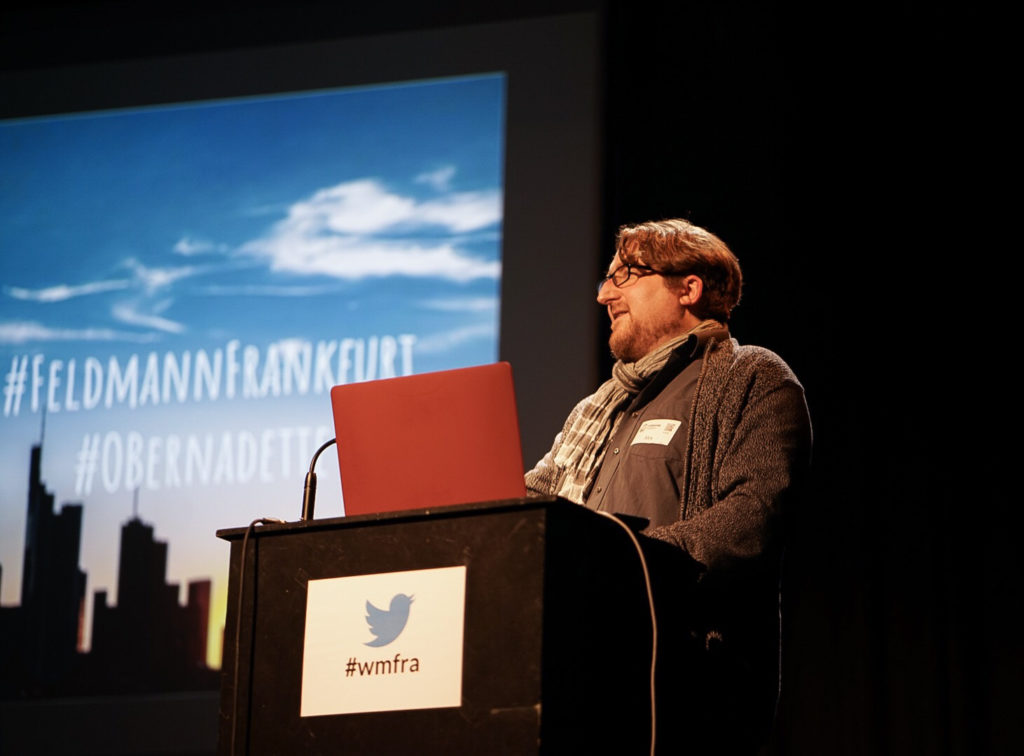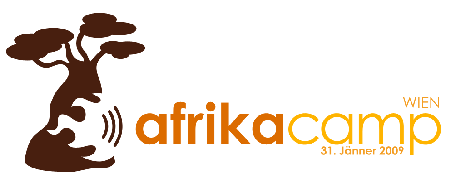
Fellow blogger Mzeecedric and I are today attending AfrikaCamp which just started a few minutes ago.
Please stay tuned for more as I will try to update this post throughout the day (see updates below). Oh and btw, there’s no ustream from the event (no videos). Sorry!
First of all: Africa = continent = many different countries, cultures, etc. (just to be clear on that).
AfrikaCamp is some sort of follow-up to the BarCampAfrica , which recently took place @ Mountain View/Google HQ in the US.
It’s my first ever vísit to Vienna btw and I am already quite surprised how great this city is!
10:00 am:
We arrived at W@lz, the location for the AfrikaCamp.

The whole of Austria is covered in snow.
11:00 am:
Sessions planning started, Cedric and I will be talking about AfriGadget.com and some blogs we’ve created for dev aid sector / German NGOs.
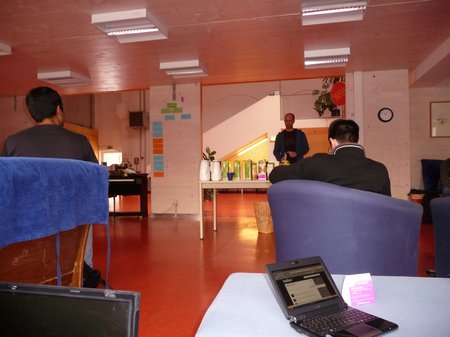
There’s free WiFi. Yaay!
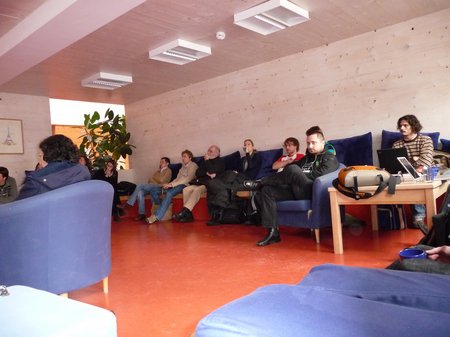
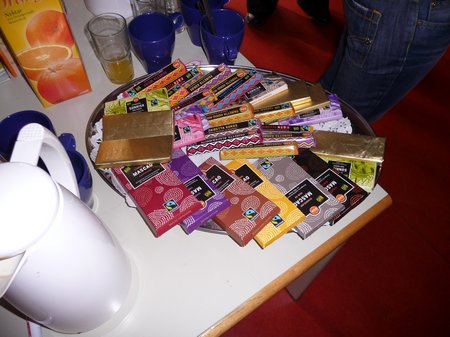
Free chocolate provided by FairTrade. Nice!
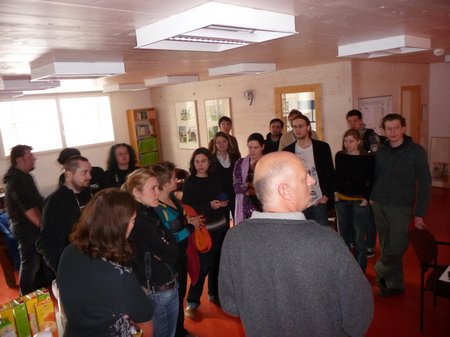
Christoph Chorherr giving an introduction to the different session to some of the ~ 40-50 attendants.
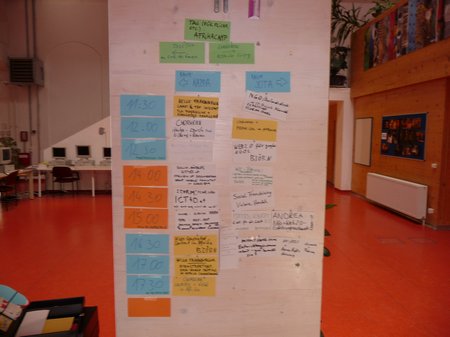
BarCamp-styled sessions.
11:30 am:
Attending the first session by Helge Fahrnberger of helge.at about laafi.at and OpenStreetMap project they are doing on Ouaggadougou.
Helge is one of the organisers of the AfrikaCamp.
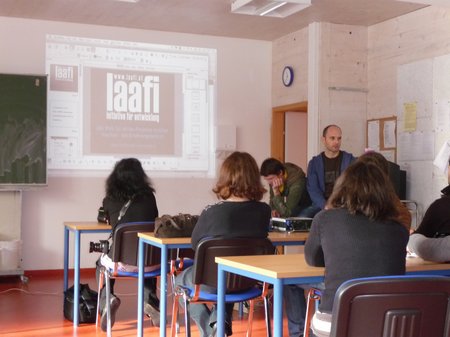
Helge Fahrnberger talking about laafi.at and OpenSourceMap.
12:00 am
Christoph Chorherr talking about two schooling projects in SouthAfrica: “social sustainable architecture” and “Ithuba Skills College“. Interesting quote from a school headmaster in SA: “We provide schooling but no education”.
[pic to follow asap]
They are also using dry toilets as the sanitation system. GREAT!
12:47 am
Yours truly presenting Erik’s slides on Afriagadget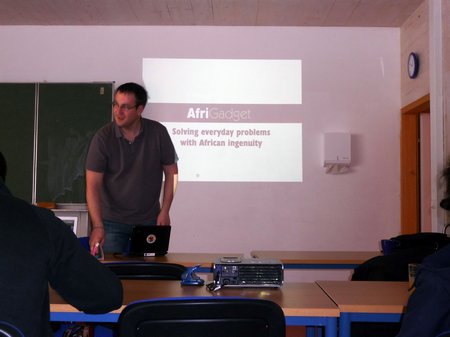
Mwalimu JKE :-)
Had to recharge my netbook after 6hrs in use. Lovely little live-blogging device (despite of its tiny keyboard).
01:20 pm
Having lunch with a guy called Kavindra who works in Vienna as a consultant at a Indo-European Developemnt Agency. Nice vegetarian stew followed by free drinks – thanks to the organisers of this fine event!
02:00 pm
Attending a session on ICT4D.at by Martin Konzett, Karola Riegler, Florian Sturm and Anders Bolin
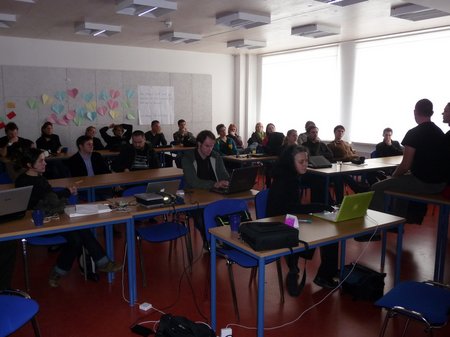
Audience clearly dominated by MacBooks. Hmm… ;-)
Martin and Anders showing a preview of their upcoming documentary on mobile phone uses in East Africa. Martin says there’s a 90% penetration of Nokia phones in Africa. Very promising documentary btw which will be released soon. Martin and Florian shot it with a Nikon D90 with different lenses
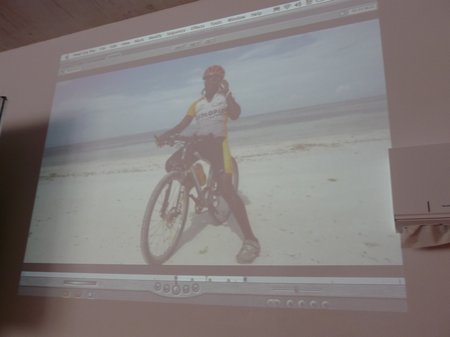
Says this guy is a famous athlete who’s constantly on the phone.
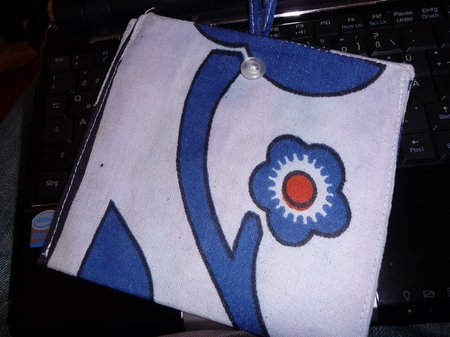
A pouch / CD sleeve made of a Kanga as alternative cover for the upcoming DVD.
Martin also talks about empowerement and mobile financing. Someone from Togo in the audience mentions that we need to have a better infrastructure in many African countries. Debatte started about technology and how it is used in many places.
03:00 pm
Attending a session by Andrea Zefferer & Andrea Ben Lassoued who are presenting their projects @ http://www.clean-it.at and http://www.kinderpate.at
Clean-IT is a project that focusses on an improvement of working conditions among IT-manufacturers (in China) by setting some social standards on the demand side…
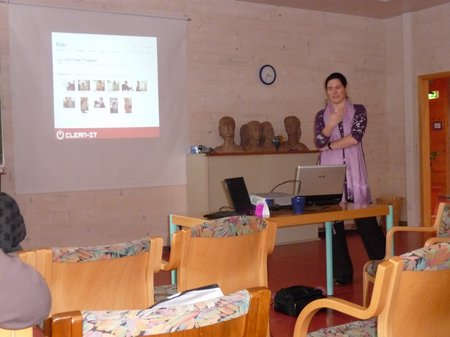
Kinderpate.at focusses on finding sponsors who are willing to support disabled kids.
03:30 pm
coffee break
04:00 pm
Giving a short video interview to Martin Konzett and Anders Bolin, both of ICT4D. Talked about AfriGadget and that we’re are currently looking for a French speaking editor who could cover parts of the francophone Africa on AG. I hate being in front of a camera, my first ever interview/pitch. Camera goes on (fisheye lens) and you’ll have to talk about your agenda for 4 minutes.
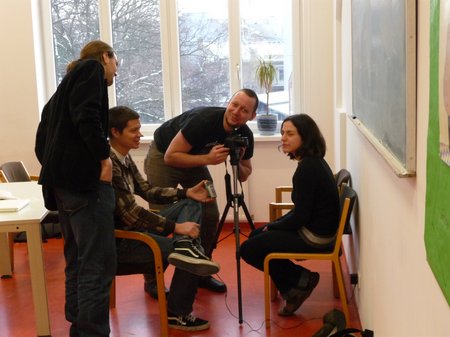
But I wasn’t the only one – seen here: Florian Sturm, Anders Bolin and Martin Konzett playing the same game with Andrea Zefferer.
04:30 pm
AfrikaCamp continues, two or three more sessions – but without us. We had to leave a bit earlier for downtown Vienna. Met an old friend of mine with whom I’d been schooling back in the days in Nbo and whom I hadn’t seen in ages.
Soo….AfrikaCamp imho was a great success, met many interesting people who are doing interesting projects, having the right visions on what works in the African context and what doesnt (NGOs tend to be more realistic then the bigger donor orgs). ICT4D.at guys are quite ambitioned, doing a good job on a tight budget. Make sure to check out their awesome documentary once it’s released on DVD (see comment below)
Else: Vienna is a GREAT city, will def. be back for more. Even my new netbook proved to be portable enough and was a great live-blogging device.
Kudos to Helge, Christoph and Karola who organised this BarCamp + Africa event!
Cheers from Vienna :-)
[UPDATE]
Florian of ICT4D also compiled a very interesting summary of the sessions I couldn’t attend. It’s a pitty that you can’t follow all sessions at once as everyone has interesting ideas to present.
A list of all sessions + list of ICT4D.at interviews are also available.


